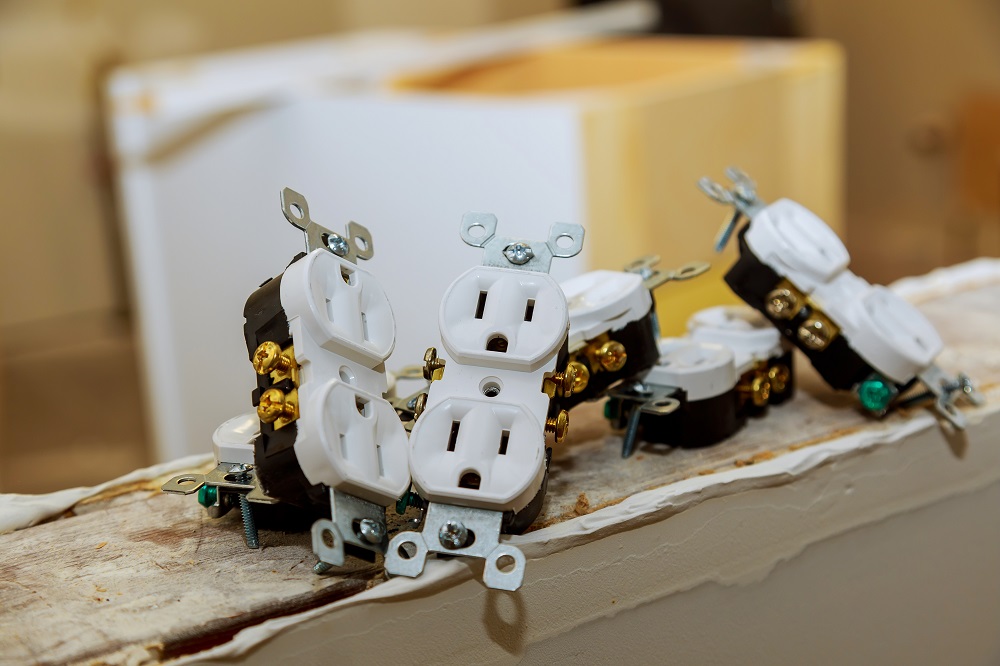Introduction
When it comes to home wiring, having the right electrical wire connectors can make all the difference in ensuring a safe, efficient, and reliable electrical system. At One & Only Electrical Service in Los Angeles, we understand that navigating the world of wire connectors can be daunting. This article aims to simplify that process by introducing you to five game-changing electrical wire connectors that you absolutely need to know about.
The Importance of Electrical Wire Connectors
Electrical wire connectors are vital components of any wiring system. They facilitate the connection of multiple wires, ensuring a steady flow of electricity throughout your home. Choosing the right type of connector not only enhances safety but also improves the longevity of your electrical installations.
1. Twist-On Wire Connectors
Overview
Twist-on wire connectors, often referred to as wire nuts, are among the most commonly used connectors in residential wiring. These connectors are designed to connect two or more wires by twisting them together and securing them with a plastic cap.
Benefits
- Ease of Use: Twist-on connectors are incredibly user-friendly, making them ideal for DIY enthusiasts and professionals alike. Simply strip the wires, twist them together, and screw on the connector.
- Versatility: They can accommodate various wire gauges, making them suitable for different applications, from electrical outlet wiring to lighting fixtures.
- Cost-Effective: Available in bulk, twist-on connectors are budget-friendly, making them a practical choice for large projects.
Applications
These connectors are ideal for general home wiring, including:
- Connecting light fixtures
- Wiring outlets
- Splicing wires in junction boxes
2. Crimp Connectors
Overview
Crimp connectors utilize a metal sleeve that connects wires by crimping it tightly around them. They provide a strong, secure connection and are commonly used in automotive and industrial applications.
Benefits
- High Reliability: Crimp connectors offer a robust connection that resists vibrations, making them ideal for mobile applications like cars or RVs.
- Quick Installation: With the right tools, crimp connectors can be installed quickly, saving time on larger projects.
- Variety of Styles: They come in different styles, such as butt connectors and ring terminals, allowing for flexible installation options.
Applications
Crimp connectors are well-suited for:
- Automotive wiring: Reliable connections in vehicles.
- Low-voltage wiring: Perfect for applications like recessed can lighting or low-voltage landscape lighting.
3. Solder Connectors
Overview
Solder connectors use solder to create a solid, conductive bond between wires. This type of connector is often used in situations where a permanent connection is required.
Benefits
- Durability: Solder connections are long-lasting and can withstand significant stress without coming loose.
- Excellent Conductivity: Solder provides a low-resistance connection, enhancing the overall efficiency of the electrical system.
- Customizable: Allows for more flexibility in wiring configurations compared to pre-made connectors.
Applications
Solder connectors are particularly effective for:
- Home automation systems: Reliable connections for smart home devices.
- Electrical vehicle charging stations: Creating durable connections that can handle high currents.
4. Insulated Terminal Connectors
Overview
Insulated terminal connectors are designed with a plastic insulation sleeve, providing an extra layer of protection against accidental contact with live wires. These connectors come in various styles, including spade, ring, and fork terminals.
Benefits
- Safety: The insulation reduces the risk of short circuits and electrical shocks, making them ideal for home wiring projects.
- Easy Identification: Many insulated connectors are color-coded, helping users quickly identify the appropriate connector for their wiring needs.
- Reusability: Insulated connectors can be removed and reused, providing added value for future projects.
Applications
These connectors are great for:
- Electrical outlet installation & repair: Ensuring safe and secure connections.
- Circuit breaker replacement: Facilitating easy connections in circuit panels.
5. Push-In Wire Connectors
Overview
Push-in wire connectors allow for a quick and easy way to connect wires without the need for twisting or crimping. Users simply push the stripped wire into the connector, and a metal spring inside grips the wire securely.
Benefits
- Fast Installation: Ideal for quick projects, these connectors save time during installation.
- User-Friendly: Push-in connectors are perfect for both professionals and DIYers who may not have extensive wiring experience.
- Compact Design: Their small size makes them suitable for tight spaces where traditional connectors might not fit.
Applications
Push-in connectors are ideal for:
- Ceiling fan installation: Simplifying connections in tight spaces.
- Home wiring projects: Making quick connections for outlets and fixtures.
Frequently Asked Questions (FAQ)
Q1: How do I choose the right electrical wire connector?
A1: Choose a connector based on wire gauge, type of connection needed, and the environment. Consult manufacturer specifications for compatibility.
Q2: Are push-in wire connectors safe to use?
A2: Yes, push-in wire connectors are safe when used according to manufacturer instructions. They provide a secure connection for various applications.
Q3: Can I reuse insulated terminal connectors?
A3: Yes, insulated terminal connectors can often be removed and reused, making them a cost-effective option for future projects.
Q4: What are the risks of using poor-quality connectors?
A4: Poor-quality connectors can lead to loose connections, overheating, and fire hazards. Always opt for connectors from reputable manufacturers.
Q5: Can I install wire connectors myself?
A5: If you are familiar with electrical systems and safety protocols, you can install wire connectors yourself. If unsure, consider hiring a licensed electrician for assistance.

